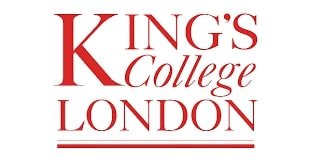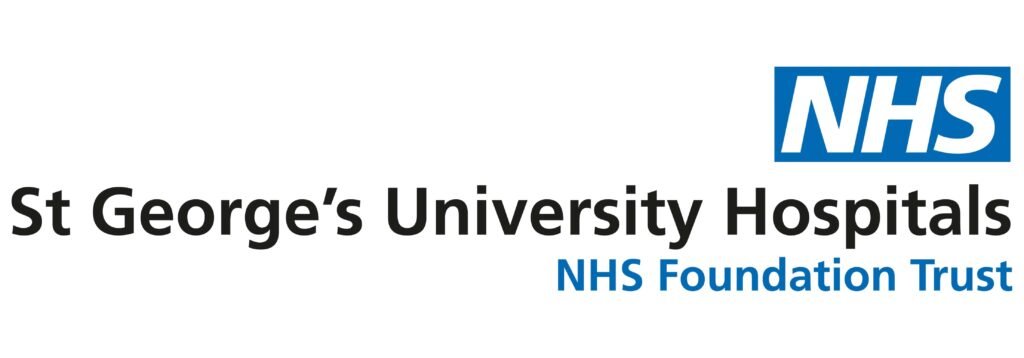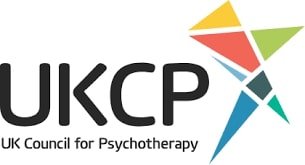
Autism Spectrum Condition (ASC): What is Autism?
Autism Spectrum Condition (ASC), previously referred to as Autism Spectrum Disorder (ASD), is an umbrella term for a group of neurodivergences, which impact how a person with ASC processes information, communicates and relates to their surroundings.
It is important to note that autism spectrum condition (ASC), which is sometimes referred to as autism spectrum disorder, is not just one condition, but rather a range of neurological differences encompassing a wide spectrum of social communication, sensory, and behavioral differences.
ASC exists on a spectrum, reflecting the unique strengths and challenges experienced by each individual diagnosed with ASC. Here, the term “spectrum” highlights the diversity of experiences amongst individuals with autism.
This article explores the characteristics and diagnosis of ASC, alongside support strategies and therapies that can empower individuals with ASC to thrive, whether they are children or adults.
This article is for educational and informational purposes only. Please see full disclaimer below.
Early Indicators of ASC:
Early recognition of ASC allows for the individual with ASC to have access to personalised, specific therapies and strategies that promote long-term success.
Common early signs of ASC include communication differences, such as:
Delayed and/or limited speech development.
Literal interpretation of communication, as opposed to understanding abstract or metaphorical language.
Having difficulty understanding non-verbal communication, such as facial expressions or gestures.
ASC traits can also include differences in social interaction styles, some of which are as follows:
- Limited eye contact, or response to being called by one’s own name.
An inclination towards independent playing, rather than playing in a group.
Struggling to understand social cues, or engage in conversations.
- Developing an intense focus on specific interests or hobbies.
- Engaging in repetitive movements, such as hand-flapping, rocking, or lining up objects.
Some individuals with ASC can also exhibit sensory sensitivities, which include the following:
- Heightened or reduced responses to sounds, textures, lights, or smells.
- Sensitivity to the texture, taste or odour of certain foods, detergents or other everyday items
Since every individual with autism is unique, these traits can be expressed in varying combinations, frequencies and intensities, and are not universally expressed amongst individuals with autism, often becoming noticeable before the age of three.
Autism in Childhood:
Children with ASC may experience challenges in areas such as communication, play and social skills.
Children with ASC might struggle with forming friendships or understanding social rules; in addition, they may express a preference for routine and structure, and conversely experience difficulties adapting to changes or new environments.
Early intervention is key to helping children develop communication tools, coping strategies, and social skills. Therapies like speech-language therapy and behavioral coaching can make a significant difference during these formative years.
Autism in Adulthood:
Although ASC is often identified in childhood, many individuals do not receive a diagnosis until adulthood, especially individuals with ASC who have less visible support needs or develop masking behaviors.
Adults with autism may experience the following:
- Relationship challenges, stemming from differences in communication styles.
- Sensory sensitivities that affect daily routines and work environments.
- Difficulty navigating change or unexpected situations.
A formal diagnosis can provide clarity and access to support groups, workplace accommodations, and personalised, individual therapies to enhance quality of life and foster mental wellbeing.
Key Traits of Autism Spectrum Condition:
Individuals with ASC may face a number of challenges in communication, including the understanding of sarcasm, metaphors, or complex language. In addition, individuals with ASC may experience difficulty expressing feelings and/or interpreting others’ emotions. Individuals with ASC often have a preference for direct, clear communication rather than allegorical or metaphorical speech.
Individuals with ASC can experience the following behaviours and patterns, which include strong interests or hobbies pursued with intense focus, resistance to changes in routines or environment, and repetitive movements such as spinning objects, pacing, and/or hand-flapping.
These traits are not inherently negative, but rather reflect different ways of processing and interacting with the world. Understanding and respecting these differences can thereby create inclusive spaces where individuals with autism thrive.
The Importance of an Autism Diagnosis
A formal diagnosis of ASC can help individuals with ASC and their families to access specialised resources, therapies, and educational support to meet their unique needs.
Diagnostic Process:
- Developmental Screening: Paediatricians can assess early milestones and behaviours, and evaluate whether a child is likely to have ASC.
- Specialist Evaluations: Tools such as the Autism Diagnostic Observation Schedule (ADOS) and the Autism Diagnostic Interview-Revised (ADI-R) are used to confirm the presence of traits indicative of ASC.
A timely diagnosis thus fosters self-awareness, opening doors to support networks, ensuring that individuals with autism feel understood and empowered.
Therapies and Treatments: Managing Life with ASC
Although ASC is not a condition to be “cured,” but rather a neurological difference, there are many therapies designed to support the development of psychological skills and thereby enhance quality of life.
Behavioural and cognitive therapies for ASC can include the following:
- Applied Behaviour Analysis (ABA), which focuses on reinforcing positive behaviours and reducing challenging/problematic behaviours.
- Cognitive behavioural therapy (CBT), which can help individuals with ASC to manage their anxiety and problem-solving skills via recognising and modifying potentially unhelpful thought patterns.
- Dialectical Behavioural Therapy (DBT) is often utilised in the context of therapy for individuals with ASC (National Autistic Society, 2020) and can help them to develop better emotional regulation.
Communication therapy, including speech and language skills, can help individuals with ASC to develop language skills. This can include the use of assistive technology to enhance nonverbal communication (NHS, 2021). Occupational therapy, as such, can support the development of fine motor skills, sensory regulation, and daily living abilities, and is available to individuals with ASC.
Social skills training can enhance the ability of individuals with ASC to form friendships, interpret social cues, and build relationships.
Sensory Integration Therapy can help individuals with ASC to regulate responses to sensory stimuli, minimising their sense of overwhelm.
Practical tips for managing ASC include the following:
- Establishing predictable routines, via defining clear schedules to reduce uncertainty and support executive function.
- Use visual supports, employing visual aids such as cue cards and charts to enhance communication.
- Encourage self-advocacy, and thereby teach individuals with ASC to express their needs and preferences confidently to others.
- Design sensory-friendly spaces, incorporating quiet areas and tools such as noise-cancelling headphones to support sensory regulation.
- Celebrate strengths and interests, supporting individuals with ASC to pursue their special interests to build confidence and self-esteem (National Autistic Society, 2020).
Many individuals with autism possess unique talents in areas such as technology, art, mathematics, and problem-solving. Recognising these strengths highlights the value of neurodiversity, promoting inclusion in education, workplaces, and communities (Health.com, 2024).
Conclusion:
In summary, Autism Spectrum Condition (ASC) encompasses a broad range of neurological differences which affect how individuals process information, communicate, and interact with the world.
Although ASC presents unique challenges in communication, social interaction, and sensory processing, early diagnosis and tailored support, via therapies such as ABA, CBT, speech and language therapy, and occupational therapy can empower individuals with ASC to thrive and overcome the challenges . Embracing neurodiversity means recognising the strengths as well as the challenges associated with ASC, ensuring that support strategies are person-centred and promote inclusion across all areas of life.
FAQ:
Q: What is Autism Spectrum Condition (ASC)?
A: ASC is an umbrella term for a spectrum of neurodivergences which impact on social communication, sensory processing and behaviour. Autism is not one condition, but a continuum of difference within the brain which manifests itself differently in different people (NHS, 2021; NICE, 2021).
Q: What are some early signs of ASC?
A: The early signs of ASC can include delayed speech developmentm having trouble with nonverbal communication, such as understanding gestures and expression, less eye contact; a preference for literal language; repetitive movements, and increased, or decreased, sensory responses (NHS, 2021).
Q: How is ASC diagnosed and what does the diagnostic process entail?
A: The diagnostic process for ASC consists of developmental screening alongside specialist evaluations involving tools such as the ADOS (Autism Diagnostic Observation Schedule) and the ADI-R (Autism Diagnostic Interview-Revised), and specialised assessments carried out by a team of professionals, who can specifically identify ASC and other neurodivergences and screen for comorbidities which can interfere with the treatment of these neurodivergences. Early diagnosis can thereby lead to early identification of mixed cohort support strategies (NICE, 2021), supporting individuals with ASC to attend mainstream schools for instance.
Q: What treatments and support exist for people with ASC?
A: In addition to behavioural therapies, such as ABA therapy, cognitive behavioural therapy (CBT), and dialectical behaviour therapy (DBT), speech and language classes, which support the development of communication and speech as psychological resources, occupational therapy, social skills training, social skills training and sensory integration therapy all can help people with ASC to build better executive function, communication and social skills. Practical support, including establishing a routine and using visual supports to aid adherence to the routine, are paramount in ensuring a better quality of life of individuals with ASC (National Autistic Society, 2020; NHS, 2021)
Q: Is there a cure for ASC?
A: No, ASC has no cure. The focus of ASC treatment, thus, is on managing challenges and maximising strengths to improve quality of life and facilitate independence (NHS, 2021).
References:
- Autism Research Centre (2022) Understanding Autism Spectrum Condition. Available at: https://www.autismresearchcentre.com (Accessed: 16 February 2025).
- National Autistic Society (2020) What is Autism?. Available at: https://www.autism.org.uk (Accessed: 16 February 2025).
- National Institute for Health and Care Excellence [NICE] (2021) Autism Spectrum Disorder in Adults: Diagnosis and Management. Available at: https://www.nice.org.uk/guidance/cg142 (Accessed: 16 February 2025).
- NHS (2021) Autism Spectrum Disorder. Available at: https://www.nhs.uk/conditions/autism/ (Accessed: 16 February 2025).
- Health.com (2024) Neurodiversity: Celebrating Different Brains. Available at: https://www.health.com/neurodivergent-8653834 (Accessed: 16 February 2025).
Disclaimer: The author, Sabbir Ahmed, is a registered psychotherapist (UKCP Reg: 2011164676). Sabbir has written this article for informational and educational purposes only, and referenced relevant sources when writing this article.
Reading this article, in and of itself, does not create a therapist–client relationship.
All content is provided on an “as is” basis; no guarantees are made as to its accuracy or completeness.
The information contained on Kind Soul Psych is for general information purposes only and does not purport to be, or constitute, medical and/or legal advice.




All Rights Reserved.

